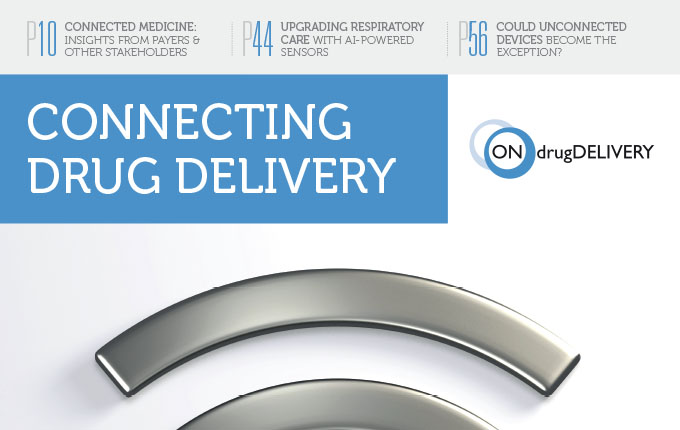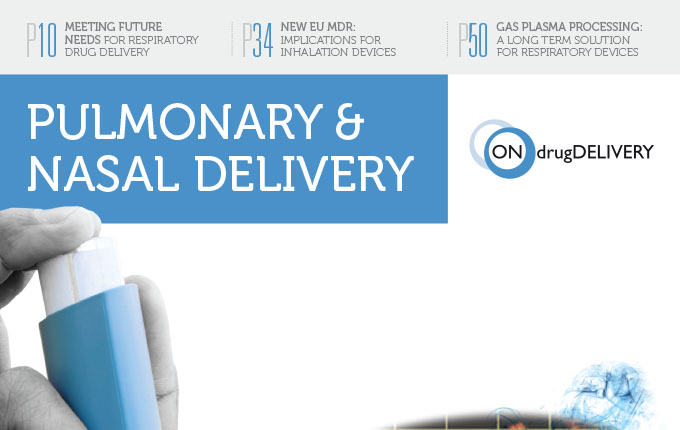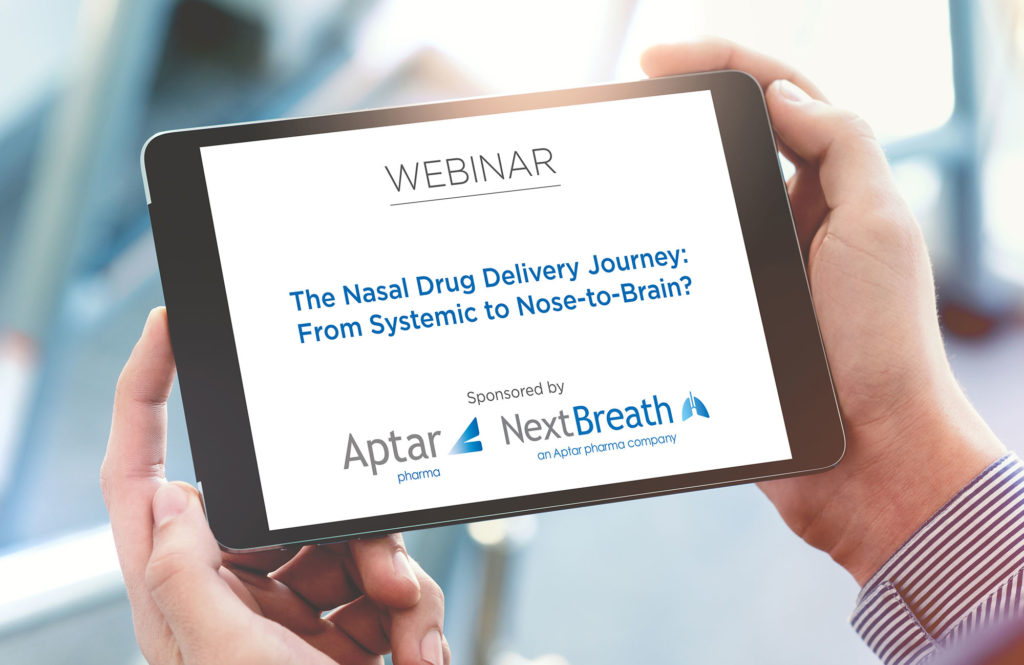Nasal drug delivery also holds promise for bypassing the brain-blood barrier through neuronal transport, enabling the treatment of illnesses associated with the CNS that are poorly served by current therapeutics. The COVID-19 pandemic has further highlighted the potential of nasal delivery for anti-viral therapeutics.
Aptar Pharma is helping biopharma companies overcome the challenges of leveraging intranasal space by providing optimized drug delivery solutions and designing formulations with the right excipients to achieve target performance whilst ensuring the right fundamental properties to achieve the spray performance and tolerability in the nasal cavity. For drug products with particularly poor solubility and/or stability, dry powders may be preferable, especially for higher dosages, which are often more typical with biologics as compared to small molecules.
Aptar Pharma also has the experience and the network to help developers implement the right studies to answer the right questions that meet the associated regulatory guidance, which is correspondingly involved, and guide companies towards the most experienced partners at the right step of the journey.
For biopharma companies considering the 505(b)(2) regulatory pathway, nasal drug product development involves a specific skill set that requires attention to detail and expertise in creating a product that goes through a number of physical states (i.e. it is aerosolized). Top tips for the biopharma community include recognizing the importance of formulation skills in intranasal delivery, understanding that liquid sprays require balancing dose, stability, and spray characteristics, and that dry powders can be delivered directly to the nose without being reconstituted, reducing the risk of drug degradation during storage. Additionally, companies should focus on identifying the right excipients such as viscosity modifiers, mucoadhesives, and penetration enhancers to achieve target performance, and work with experienced partners who can help implement the right studies to meet regulatory guidance.
Learn more about Aptar Pharma Expertise
in Nasal Drug Delivery
This Might Also Be of Interest

Connected Medicine: Insights from Payers and Other Stakeholders
Publications, Pharmaceutical, Innovation & Insights, Drug Delivery Innovations, Brand Differentiation, Product Solutions

A track record of success for nasal drug delivery in drug repurposing
Publications, Pharmaceutical, Product Solutions, Innovation & Insights, Drug Delivery Innovations, Brand Differentiation

The Nasal Drug Delivery Journey: from Systemic to Nose-to-Brain?
Webinars, Pharmaceutical, Market Insights, Product Solutions, Innovation & Insights, Drug Delivery Innovations
Using multi-dose nasal spray pumps for intranasal drug delivery
Publications, Pharmaceutical, Product Solutions, Innovation & Insights, Drug Delivery Innovations

